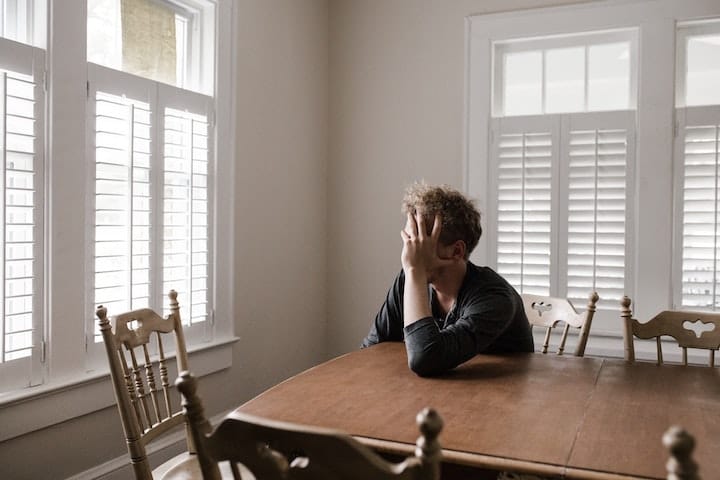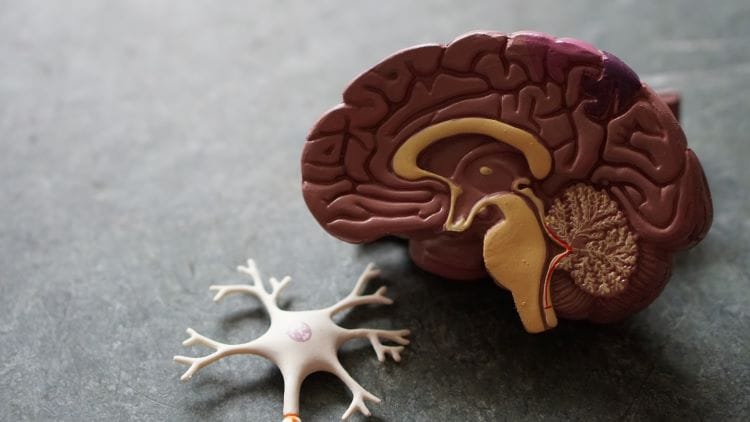Alcoholism, also known as Alcohol Use Disorder (AUD), is when you experience a loss of control over your drinking habits.
What might start as having a drink after work or at a social event turns into a habit you rely on.
Over time, alcohol starts to take over, affecting your health, relationships, and even your work or home life.

Alcohol use disorder is defined as a medical condition that causes you to feel unable to stop drinking, despite the harm it causes to your relationships, work and health.[1]
When this happens, drinking shifts from something you do occasionally to something you feel you need.
At Rehab 4 Addiction, we offer advice and referrals to top rehabs across the UK.
For more information about treatment for alcoholism, reach out to our 24/7, confidential hotline on 0800 140 4690.
Social drinking means you have a drink now and then at a party or with dinner, and you can stop whenever you like.
You might go days or weeks without thinking about alcohol.
Alcoholism is different.
It involves drinking alone, hiding bottles around the house, lying about how much you drink, or needing alcohol to feel “normal” during the day.

Alcoholism doesn’t happen overnight.
You might begin by having a drink to relax in the evening, but slowly, that drink turns into two or three.
Over months or years, your body starts to rely on alcohol.
You may need more alcohol to get the same relaxed feeling, or you might feel anxious or shaky when you haven’t had a drink in a while.
Alcoholism progresses slowly but steadily, and without help, it usually gets worse over time.
At Rehab 4 Addiction, we offer advice and referrals to top rehabs across the UK.
For more information about treatment for alcoholism, reach out to our 24/7, confidential hotline on 0800 140 4690.

As alcoholism progresses, it can be categorised into three main stages – early, middle, and end-stage (late stage alcoholism).
Each stage shows different behaviours and symptoms.
Recognising the early signs of alcoholism can prevent you from reaching the more damaging stages.
If you find that you drink more than you planned or start looking forward to your next drink, or wake up filled with regret about how much you had the night before, it’s a warning sign.
If you’re starting to use alcohol to cope with problems instead of for social reasons, this is a red flag.
Spotting these signs early can save you from the physical and emotional toll of alcoholism down the line.[2]

Early-stage alcoholism is when your relationship with alcohol starts changing in ways that might not seem obvious at first.
You may still feel in control, but this is the phase where your drinking habits shift from occasional or social drinking to something more regular and necessary.
During this stage, drinking becomes part of your routine.
It might start innocently—like having a beer after work to unwind.
Over time, though, you might notice you’re having that beer every night, not just after a stressful day, but because it’s become a habit.
This gradual shift in how and why you drink is the foundation of early-stage alcoholism.
The NHS advises that both men and women should not regularly drink more than 14 units of alcohol per week to keep health risks low.
Exceeding this limit is considered hazardous and can be an early indicator of alcohol misuse.[3]
At Rehab 4 Addiction, we offer advice and referrals to top rehabs across the UK.
For more information about treatment for alcoholism, reach out to our 24/7, confidential hotline on 0800 140 4690.

There are a few tell-tale signs of early-stage alcoholism that can help you recognise if your drinking is becoming an issue.

It can be difficult to admit that drinking is becoming a problem, but there are ways to identify it:
With others, you might notice they’re:

In this stage, denial is common. You might tell yourself things like, “It’s just a few drinks, I can stop whenever I want.”
Or you might compare your drinking to others who seem to drink more heavily and think, “I’m not as bad as they are.”
If you’re surrounded by friends who binge drink on weekends, your nightly glass of wine might not seem like a big deal.
But this kind of thinking can keep you from seeing the real problem: your drinking habits are changing, and they’re starting to take over more of your life than you realise.
At Rehab 4 Addiction, we offer advice and referrals to top rehabs across the UK.
For more information about treatment for alcoholism, reach out to our 24/7, confidential hotline on 0800 140 4690.

Even in the early stage, alcohol can start to affect your relationships. You might find that your social activities begin to revolve around drinking.
Instead of going to the cinema or taking part in a hobby you used to enjoy, you might suggest going to a bar or having drinks at home.
You could also start isolating yourself, preferring to drink alone instead of socialising. This can lead to friction with family members who notice the change in your behaviour.
Over time, these small shifts can create distance between you and the people you care about, especially if they’re concerned about your drinking.
Recognising early-stage alcoholism is crucial because it’s the easiest time to make changes.

In middle-stage alcoholism, alcohol becomes something your body relies on.
You may drink first thing in the morning to stop the shaking or sweating, and you find it hard to focus without a drink. Alcohol isn’t just a part of your routine—it’s the centre of it.
At this point, quitting or cutting back leads to withdrawal symptoms, making it harder to go without alcohol.
The effects of alcohol use on your body and mind are much more noticeable now, and it starts to interfere with many parts of your life.
Regular heavy drinking or binge drinking at this stage leads to noticeable health problems such as liver damage (alcoholic liver disease), and mental health issues like depression and anxiety.[4]

Several signs show that you’re in middle-stage alcoholism:
At Rehab 4 Addiction, we offer advice and referrals to top rehabs across the UK.
For more information about treatment for alcoholism, reach out to our 24/7, confidential hotline on 0800 140 4690.

At this stage, you’re drinking much more often and in larger quantities.
Where you might have once had a couple of drinks after work, now you find yourself having four, five, or even more.
Drinking becomes something you do more frequently, often at times you wouldn’t have before—like in the morning or during the workday.
You may have started having a drink to “take the edge off” in the morning or carry alcohol with you to ensure you don’t run out.
The focus shifts from enjoying alcohol to needing it.

The effects of alcohol on your daily life become harder to ignore during this stage:
At Rehab 4 Addiction, we offer advice and referrals to top rehabs across the UK.
For more information about treatment for alcoholism, reach out to our 24/7, confidential hotline on 0800 140 4690.

Alcohol has a significant impact on your mental health during this stage.

Alcoholism at this stage can lead to serious legal and financial consequences like drink-driving charges.
Financially, the cost of drinking adds up.
You might spend more on alcohol than you can afford, neglecting bills or other important expenses.
At Rehab 4 Addiction, we offer advice and referrals to top rehabs across the UK.
For more information about treatment for alcoholism, reach out to our 24/7, confidential hotline on 0800 140 4690.

Treatment is available for middle-stage alcoholism, and it’s important to seek help before things get worse.
Middle-stage alcoholism can feel overwhelming, but recognising the signs and seeking help can make all the difference.

End-stage alcoholism is the most severe phase. At this point, drinking is no longer a choice. It’s a need.
Your body has become completely dependent on alcohol, and without it, you face severe withdrawal symptoms.
The physical and mental damage is extensive, and life without medical help becomes almost impossible.
Unfortunately, many people in this stage face life-threatening health problems, and the risk of death is high.
In 2020, there were 7,423 alcohol-specific deaths in the UK – the highest number ever recorded. This underscores the fatal consequences associated with end-stage alcoholism.[6]

End-stage alcoholism is when alcohol use has taken over every part of your life.
Your body relies on alcohol to function, and stopping suddenly can be fatal without medical intervention.
The body is breaking down, and without treatment, the outcome can be deadly.
At Rehab 4 Addiction, we offer advice and referrals to top rehabs across the UK.
For more information about treatment for alcoholism, reach out to our 24/7, confidential hotline on 0800 140 4690.

The signs of end-stage alcoholism are extreme and can cause both physical symptoms and mental disorders.

End-stage alcoholism carries a high risk of early death.
The damage to your organs, especially your liver and heart, can lead to fatal conditions like liver failure or heart attacks.
Liver failure might cause your body to swell with fluid, leading to intense pain, internal bleeding, and eventual death if untreated.
Additionally, alcohol lowers your inhibitions and impairs judgment, increasing the chances of fatal accidents.
Drinking and driving, falling, or choking on vomit while unconscious are all common ways that alcoholism leads to premature death.
Your immune system is also weakened, making infections like pneumonia or tuberculosis more dangerous and harder to recover from.
At Rehab 4 Addiction, we offer advice and referrals to top rehabs across the UK.
For more information about treatment for alcoholism, reach out to our 24/7, confidential hotline on 0800 140 4690.
 Your body shows clear signs of breakdown in the final stage of alcoholism.
Your body shows clear signs of breakdown in the final stage of alcoholism.

Alcohol doesn’t just affect your body—it has a serious impact on your brain as well.
At Rehab 4 Addiction, we offer advice and referrals to top rehabs across the UK.
For more information about treatment for alcoholism, reach out to our 24/7, confidential hotline on 0800 140 4690.

End-stage alcoholism requires immediate medical intervention:
End-stage alcoholism is a life-threatening condition, but with the right treatment, recovery is still possible.
Seeking help as soon as possible can save your life, allowing you to regain your health and rebuild your relationships.

Alcoholism progresses gradually, often sneaking up on you without noticing. It begins with casual drinking and can slowly turn into a serious dependency.
Understanding this helps you see how drinking can shift from an occasional habit to a life-altering problem.
At Rehab 4 Addiction, we offer advice and referrals to top rehabs across the UK.
For more information about treatment for alcoholism, reach out to our 24/7, confidential hotline on 0800 140 4690.

Alcoholism does have genetic risk factors.
This means that if your parents or grandparents had issues with alcohol, you may have a genetic predisposition to become addicted more easily.
However, your environment also plays a huge part.
If you grow up around people who drink heavily, you might start thinking that frequent drinking is normal.
If your friends or co-workers often drink after work, you might feel pressure to join them.
Over time, this kind of environment can push you to drink more regularly than you intended.[9]

The time it takes for alcoholism to develop can vary.
Some people can drink socially for years without becoming addicted, while others might start showing signs of alcoholism after just a few months of heavy drinking.
If you’re drinking to cope with stress or emotional pain, the progression can happen faster because you’re using alcohol as a crutch more frequently.
At Rehab 4 Addiction, we offer advice and referrals to top rehabs across the UK.
For more information about treatment for alcoholism, reach out to our 24/7, confidential hotline on 0800 140 4690.

Mental health plays a big role. If you struggle with anxiety, depression, or trauma, you might turn to alcohol as a way to manage these feelings.
If you have social anxiety, you might start having a drink before social events to calm your nerves.
People who start drinking heavily at a young age are also at greater risk.
The earlier you begin drinking, the more likely you are to develop a dependency later in life.[11]

Social drinking can increase to several drinks in one sitting, and eventually, you might find yourself drinking during the day.
Someone who used to enjoy one beer after work might now need three or four to feel the same level of relaxation.
At Rehab 4 Addiction, we offer advice and referrals to top rehabs across the UK.
For more information about treatment for alcoholism, reach out to our 24/7, confidential hotline on 0800 140 4690.

Spotting the signs of alcoholism early can prevent serious long-term damage.
Early intervention can be as simple as cutting back on drinking or seeking advice from a healthcare professional.
If you notice you’re starting to rely on alcohol to fall asleep or cope with stress, addressing it now can prevent the problem from escalating.
The earlier you take steps to reduce your drinking, the easier it is to stop the progression before it becomes a full-blown addiction.
If you’re concerned about your drinking, now is the best time to act.[11]

Drinking heavily over time leads to both short-term and long-term health problems, some of which can be life-threatening.
The damage builds up slowly but can cause irreversible harm if left untreated.[12]
At Rehab 4 Addiction, we offer advice and referrals to top rehabs across the UK.
For more information about treatment for alcoholism, reach out to our 24/7, confidential hotline on 0800 140 4690.

Seeking help for alcoholism can feel overwhelming, but recognising that you need support is the first crucial step.
Several treatment options are available, and the best one depends on your personal situation.

The NHS recommend the following medications for the treatment of alcoholism:[13]
At Rehab 4 Addiction, we offer advice and referrals to top rehabs across the UK.
For more information about treatment for alcoholism, reach out to our 24/7, confidential hotline on 0800 140 4690.

These are treatments that work on your thoughts and patterns of behaviour:

There are many free and charity-funded services that can offer you and your family with issues surrounding alcoholism:
At Rehab 4 Addiction, we offer advice and referrals to top rehabs across the UK.
For more information about treatment for alcoholism, reach out to our 24/7, confidential hotline on 0800 140 4690.

The best approach is to talk to them when they’re sober and calm.
Use “I” statements, like, “I’m worried about how much you’ve been drinking lately,” rather than blaming or accusing them.
Offer support and help them find treatment options, but understand they need to decide for themselves to get help.
Be patient, as denial is common, and pushing too hard can sometimes cause them to pull away.

Surrounding yourself with people who encourage your sobriety can make all the difference.
Family members who understand your struggle can help you avoid triggers or offer a listening ear when you feel tempted to drink.
Support groups like AA also provide a sense of community, which can help you stay motivated during tough times.
At Rehab 4 Addiction, we offer advice and referrals to top rehabs across the UK.
For more information about treatment for alcoholism, reach out to our 24/7, confidential hotline on 0800 140 4690.

Aftercare is essential to maintaining sobriety long-term.
After completing a rehab programme, continuing with therapy or attending support groups like AA can help you stay focused on recovery.
Regular check-ins with a therapist can help you work through challenges and avoid relapse.
Building a long-term support system is key to staying sober and dealing with the ups and downs of life without alcohol.

Early signs of alcoholism often look like small changes.
You might find yourself drinking more frequently, like having a few drinks every evening instead of just on weekends.
Drinking alone, hiding bottles, or feeling guilty about how much you drink are all red flags.
Fatty liver, caused by excess drinking, can heal completely within a few months of quitting alcohol.
However, permanent damage, like cirrhosis (severe scarring of the liver), can’t be undone.
If your liver is too damaged, you may face long-term health problems even after you stop drinking.
At Rehab 4 Addiction, we offer advice and referrals to top rehabs across the UK.
For more information about treatment for alcoholism, reach out to our 24/7, confidential hotline on 0800 140 4690.

The speed of progression varies for everyone.
For some, it might take years of heavy drinking to reach the middle or end stages of alcoholism.
Others might develop a serious addiction within months if they’re drinking heavily every day.
Yes, alcoholism can run in families. If one or both of your parents struggled with alcohol, you’re at a higher risk of developing a problem yourself.
However, genetics aren’t the only factor.

Yes, it’s possible to recover from end-stage alcoholism, but it is challenging.
At this stage, your body is physically dependent on alcohol, and stopping without medical help can be dangerous.
You might need medical detox to manage withdrawal symptoms like seizures or hallucinations.
If you notice someone drinking more frequently or in secret, this could be a sign of alcoholism.
They may also become defensive or angry when confronted.
You might see them neglect responsibilities, like missing work or avoiding family events, because of hangovers or the need to drink.
Watch for physical signs too, like shaking, sweating, or anxiety when they haven’t had a drink.
At Rehab 4 Addiction, we offer advice and referrals to top rehabs across the UK.
For more information about treatment for alcoholism, reach out to our 24/7, confidential hotline on 0800 140 4690.

Yes, therapy can make a big difference in the early stages.
Cognitive-behavioural therapy (CBT) helps you understand what triggers your drinking and teaches you new coping strategies.
Group therapy or support groups like Alcoholics Anonymous (AA) can also provide the support and accountability you need to stay on track.
Heavy drinking means consuming large amounts of alcohol regularly, but it doesn’t always lead to alcoholism.
The key difference is control. A heavy drinker might still have control over their drinking—choosing when and how much to drink.
An alcoholic, however, has lost control. They might promise to stop after one drink but find themselves drinking far more.
Alcoholism involves a physical and mental dependence on alcohol, while heavy drinking hasn’t yet crossed into addiction.

Understanding these stages is vital because it helps you recognise when alcohol is starting to control your life.
The earlier you catch these signs, the easier it is to stop the progression.
Whether it’s through therapy, rehab, or a support group, seeking help early can prevent serious damage to your body and relationships.
Taking action now improves your chances of healing, helping you regain control of your life and begin a new chapter in recovery.
At Rehab 4 Addiction, we offer advice and referrals to top rehabs across the UK.
For more information about treatment for alcoholism, reach out to our 24/7, confidential hotline on 0800 140 4690.
[2] https://www.nhs.uk/conditions/alcohol-misuse/
[3] https://www.nhs.uk/live-well/alcohol-advice/the-risks-of-drinking-too-much/
[4] https://www.nhs.uk/conditions/alcohol-misuse/
[7] https://www.nhs.uk/conditions/alcohol-misuse/risks/
[9] https://jamanetwork.com/journals/jama/article-abstract/399449
[11] https://link.springer.com/chapter/10.1007/978-3-7091-0541-2_5
[12] https://pdfs.semanticscholar.org/e4e0/503dcc1aa023b442120ce37fda51fe18ba67.pdf
[13] https://www.nhs.uk/conditions/alcohol-misuse/treatment/